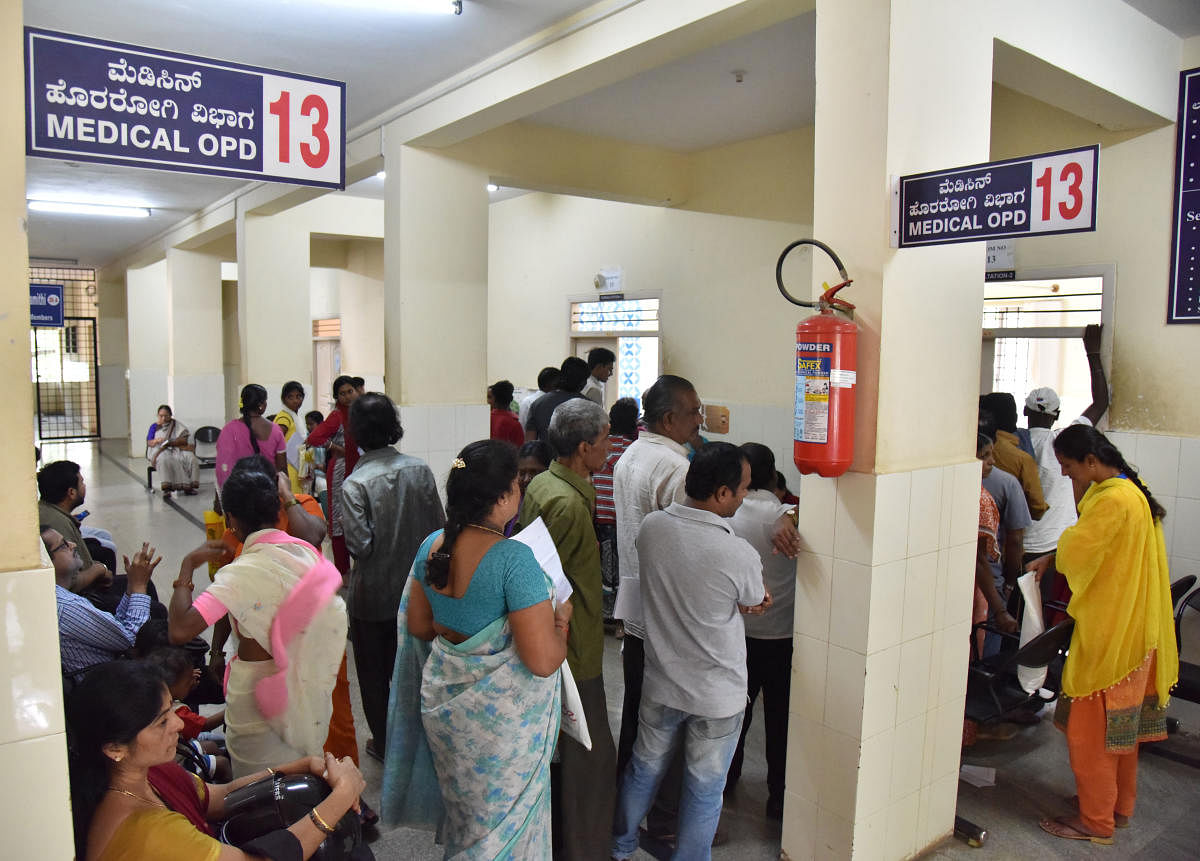
Doctors in the city say that the number of viral fever cases have been increasing at a steady pace owing to change in the weather. They say that there are at least 150 new viruses in the air and these keep evolving.
“Whenever there is a change in weather, especially with the onset of rain or cold, factors in the environment, protective mechanisms in the body and human behaviours change. For instance, rain leads to collection of water, enabling mosquitoes to breed and thereby increasing the incidence of viral fever,” says Sanjiv Lewin, chief of medical services and professor paediatrics, ethics and medical education, St John’s Medical College Hospital.
He points out that the cold weather may increase the dryness in the throat, leading to loss of normal protection and increased chances of throat infection.
“Human behaviour may change with climate changes. For example, people drink iced liquids like juices in hot weather. Use of contaminated water in these leads to spread of viruses,” he adds
Doctors warn that persisting cold, cough and fever must be treated immediately without delay. “Warning signs are important irrespective of actual virus identification,” says Sanjiv.
He points out that most viral fevers have a self-limiting three to five-day duration, during which one may have fever, body aches, headaches, and gastric or respiratory problems.
“Clinical history and examination is rarely able to confirm which is the virus causing the problem unless it is already widespread in a community. Complicated dengue may cause the person to have low BP, decreased urine output, cold extremities or bleeding from the mouth, intestines or the skin,” Sanjiv explains.
What are the preventive measures one can take?
“One major preventive aspect is increasing hand washing and teaching etiquette, especially when dealing with cough and cold. Use a handkerchief and cover the mouth while coughing. It is always advised to stay away from school or office when sick,” Sanjiv says.
Dr Suneela Nayak, consultant paediatrician and expert in paediatric allergy and asthma, paediatric endocrinology, says viruses are never constant and they keep changing.
“This is why we insist that flu vaccines be given every year because viruses adapt, unlike bacteria where we have specific antibiotics for specific bacteria. For most of the viruses, we don’t have any treatment.”
Suneela says that a lot of the symptoms associated with viral illness are very similar to those of dengue or chikungunya.
“The main problems are fever, headache and body ache, but all of these are symptoms of flu also. Not all viruses come with high temperature. But with dengue, one of the key things that most people complain about is severe headache. And it is also unresponsive to fever medicines,” she explains.
“It is important to take the right dose of medicines after consulting a doctor rather than resort to self-medication and compromise on the dosage,” she adds.
Dr H Paramesh, paediatric pulmonologist, environmentalist and chairman of New Sirona Center for Health Promotion, points out that it is important to take enough precaution during viral fever. “When the fever goes down, many people become lax but the next 48 hours are crucial because a lot of chemicals will be released during this time and this could decrease blood circulation. This has adverse effects,” warns Dr H Paramesh.
He says that viral fever could tire people so it is important to replenish the fluids in the body by frequently consuming water and other fluids.
DON'T IGNORE THESE SYMPTOMS
- Severe headache is one of the cardinal features of dengue
- Fever that is not responding to medication
- Fatigue and exhaustion
- Red throat, runny nose and cough
PRECAUTIONS
- Have mosquito meshes in all rooms. Be careful when opening and
closing doors.
- Make sure there’s no stagnant water in gardens and the kitchen.
- This makes it easy for mosquitoes to lay eggs.
- Wear full-sleeve clothing and trousers with socks.
- Dispose of used tissues in the right manner. Or use clean handkerchiefs and wash them regularly.
- Regular fogging helps. This will prevent the breeding of mosquitoes.
- Use mosquito repellents.
KEEP A DISTANCE
Dr H Paramesh points out that it is important to maintain a distance of three feet from people infected with viral fever. “The person who is infected will emit hundreds of germs while talking. When coughing, at least 1,000 germs will be emitted and while sneezing, one lakh. This spreads faster than you think it does,” he cautions